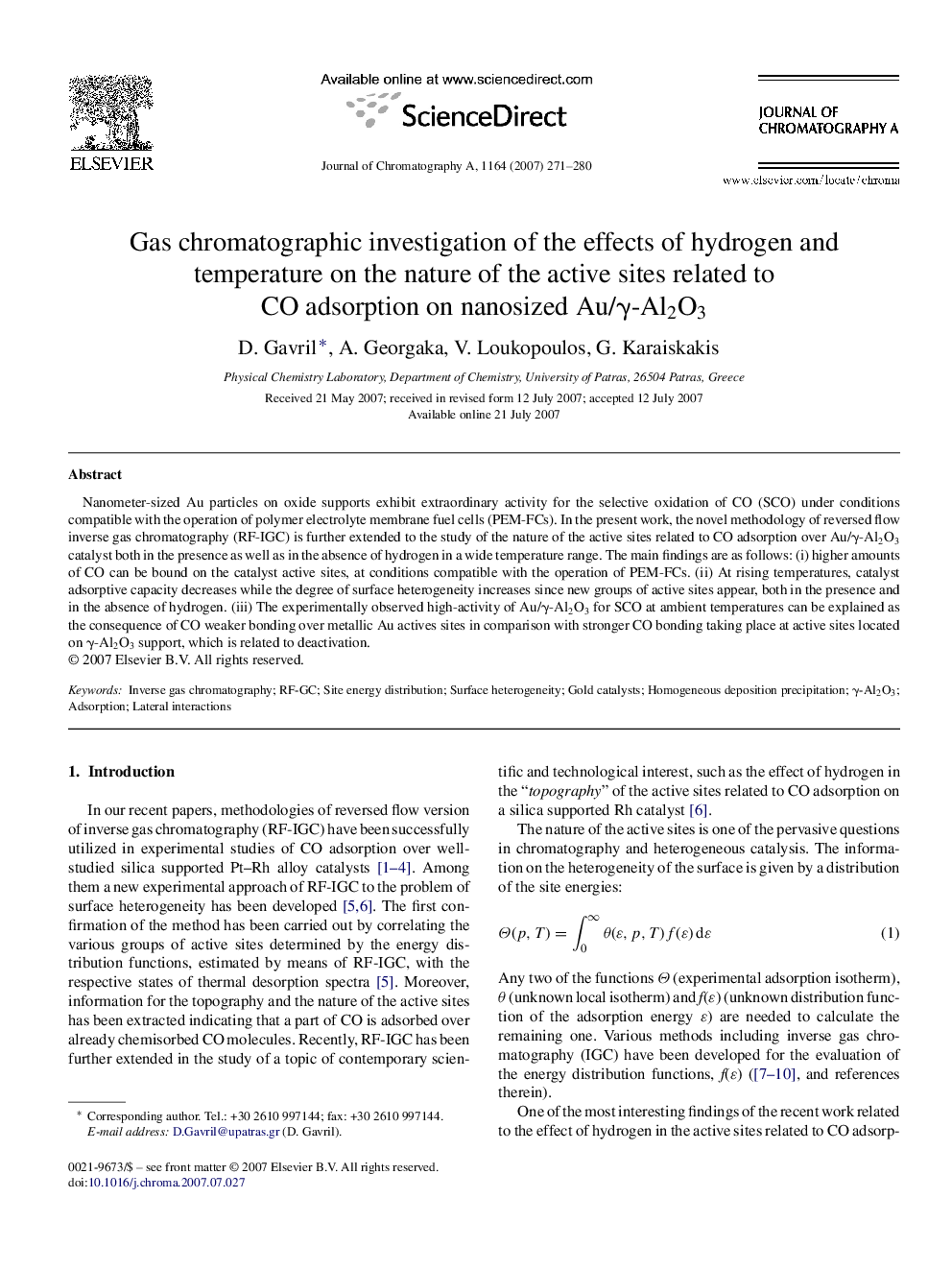| Article ID | Journal | Published Year | Pages | File Type |
|---|---|---|---|---|
| 1208832 | Journal of Chromatography A | 2007 | 10 Pages |
Abstract
Nanometer-sized Au particles on oxide supports exhibit extraordinary activity for the selective oxidation of CO (SCO) under conditions compatible with the operation of polymer electrolyte membrane fuel cells (PEM-FCs). In the present work, the novel methodology of reversed flow inverse gas chromatography (RF-IGC) is further extended to the study of the nature of the active sites related to CO adsorption over Au/γ-Al2O3 catalyst both in the presence as well as in the absence of hydrogen in a wide temperature range. The main findings are as follows: (i) higher amounts of CO can be bound on the catalyst active sites, at conditions compatible with the operation of PEM-FCs. (ii) At rising temperatures, catalyst adsorptive capacity decreases while the degree of surface heterogeneity increases since new groups of active sites appear, both in the presence and in the absence of hydrogen. (iii) The experimentally observed high-activity of Au/γ-Al2O3 for SCO at ambient temperatures can be explained as the consequence of CO weaker bonding over metallic Au actives sites in comparison with stronger CO bonding taking place at active sites located on γ-Al2O3 support, which is related to deactivation.
Keywords
Related Topics
Physical Sciences and Engineering
Chemistry
Analytical Chemistry
Authors
D. Gavril, A. Georgaka, V. Loukopoulos, G. Karaiskakis,
